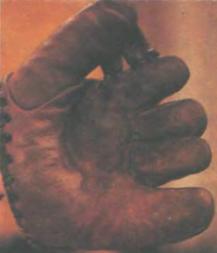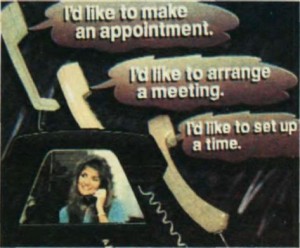Family Album USA 14 — Playing Games
Смотреть онлайн в хорошем качестве курс английского языка — сериал Family Album USA 14 серия «Playing Games» с английскими субтитрами:
Упражнения и Словари к 14 серии Family Album USA:
In this episode, you will study . . .
VOCABULARY
convenient
suburbs
marketing
shuffle (cards)
clockwise
tied (score)
troop (of scouts)
assume
hint
proposal
GRAMMAR AND EXPRESSIONS
there is/there are in conversation
past perfect verb tense
idioms:
squeeze into (a schedule)
get to know
happen to
figure (it) out
U.S. LIFE
- What has helped the growth of the suburbs in the United States?
- What is the purpose of scouting organizations?
YOUR TURN
- Do you prefer living in the city or the suburbs?
- Have you ever been a Girl Scout or a Boy Scout?
convenient: easy to travel to many places; near everything
movie houses: movie theaters; cinemas
suburbs: an area near a big city
There’s a lot of good things . . . The correct form is There are a lot of good things because the real subject (things) is plural. In conversation, this error of saying there is instead of there are is common because the real subject of the sentence comes after is or are. In most other sentences, the real subject comes before is or are.
working woman: a woman who works
aquarium: a building where you can see different kinds of fish
Museum of Natural History: a popular museum in New York City. The American Museum of Natural History is famous for its skeletons of dinosaurs and for its shows about people from different cultures around the world.
managed to: was able to (do something difficult)
squeeze a Sunday in: find time on a Sunday. You can also squeeze someone into your busy schedule.
Metropolitan Museum of Art: a popular art museum in New York City. The Metropolitan Museum of Art contains some of the most famous paintings in the world.
inviting: attractive
pumpernickel: a dark bread
get to know (each other): to learn more about (each other) little by little
U.S. LIFE
Automobiles have helped the growth of the suburbs in the United States. During this century, a large part of the U.S. population has moved to areas outside the big cities. However, the invention of the elevator has helped to keep many people working in tall city buildings. Therefore, many Americans work in the city but live in the suburbs. These people are called commuters. They sometimes travel for one or two hours in order to get to work in the morning and to get home at night.
YOUR TURN
- Do you prefer living in the city or the suburbs? Why?
- Is there much commuter traffic in or around cities near your home?
Activities
THE SUBURBS AND THE CITY
Circle the letter of the correct answer to each of the following questions. If necessary, you may reread the script for Act 1 to find the answers.
1. Which reasons does Susan give tor preferring to live in the city?
a. It’s convenient, and you can find better jobs.
b. It’s convenient, and there are many things to do
c. There are many things to do, and you can find better jobs.
2. What does Harry say about his daughter?
a. Michelle should continue living in the suburbs because there are more trees.
b. It was never a good idea for Michelle to live in the suburbs because she couldn’t visit museums.
c. It was good for Michelle to live in the suburbs, but now she might enjoy living in the city.
3. What does Susan say about her life as a child?
a. She lived in Riverdale, but she often visited places in the city.
b. She lived in the city, but she often visited places in the suburbs.
c. She lived in Riverdale, and she almost never visited the city.
4. For whom does Harry say there is a lot to see and do in the city?
a. children only
b. adults only
c children and adults
5. Which is true about Harry’s experiences in the city?
a. He has gone to the aquarium, to the Museum of Natural History, and to the Metropolitan Museum of Art.
b. He has gone to the aquarium and to the Museum of Natural History but not to the Metropolitan Museum of Art.
c. He hasn’t gone to the aquarium or to the Museum of Natural History, but he has gone to the Metropolitan Museum of Art.
6. What do Susan and Harry say they might do together with Michelle?
a. visit some great places in the city
b. visit some great places in the suburbs
c visit some great places in the city and the suburbs
WORD WATCH
Check your understanding of the underlined words in each of the following sentences. Choose the more logical phrase to complete each sentence. Write the better answer on the blank line.
1. I managed to find time to go to the museum ___________.
a. because I had a lot of work to do
b. because I didn’t have a lot of work to do
2. I can squeeze you into my schedule ___________.
a. because I have a little free time in the afternoon
b. because I have no free time in the afternoon
3. We got to know each other very well __________.
a. because we spent a lot of time together
b. because we didn’t spend any time together

Come on in. = Come in. This is a friendlier form.
I had never been there before. = I was never there before we went there today. Had been is the past perfect tense. Use this tense (had + past participle) to refer to something that happened before another past time.
manufactures: makes
marketing: selling and advertising
I happen to . . . = You might be surprised to hear that I . . .
We tested it last week on twelve- to fifteen-year-olds. We tested it on them means «We tried it with them.» In other words, they tried to play the game.
They found it to be . . . = For them it w a s . . .
shuffle the deck: to mix the cards
lay: to put; place
face down: with the front side down
face up: with the front side up
counterclockwise: in the opposite direction of the movement of a clock’s hands. Clockwise means in the same direction as the movement of a clock’s hands.
You’re all tied. = You all have the same score, or number of points
additional: extra
get going: to start to leave. This is an informal phrase.
troop: a group of Girl Scouts or Boy Scouts with an adult leader
U.S. LIFE
Michelle and her friends are Girl Scouts. This organization began in the United States in 1912. The Boy Scouts of America began in 1910. The purpose of scouting organizations is to help girls and boys become good citizens and to become physically and mentally healthy.
YOUR TURN
- Have you ever been a Girl Scout or a Boy Scout?
- Are there scouting groups in your native country?
Activities
TAKE MY WORD!
Try to make words by using the twelve letters below. Use each clue and the number of letters in parentheses. Write each answer on the blank line.
N A C O T U C A T N
1. an animal (3 letters) _ _ _.
2. is able to (3 letters) _ _ _.
3. 2000 pounds (3 letters) _ _ _.
4. Movie stars do this. (3 letters) _ _ _.
5. your uncle’s wife (4 letters) _ _ _ _.
6. something to wear in the winter (4 letters) _ _ _ _.
7. something to do with scissors (3 letters) _ _ _.
8. 1, 2, 3, 4, 5 . . . (5 letters) _ _ _ _ _.
9. Harry Bennett’s occupation (10 letters) _ _ _ _ _ _ _ _ _ _.
PAST PERFECT
Use the past perfect verb tense {had + past participle) to refer to something that happened before another past time. There must always be a later past-time reference when you use the past perfect. In other words, you use the past perfect when there are two past-time references: the verb time and a later past time.
For example, when Mrs. Cooper was talking to Susan and Harry about the aquarium, she said, «I had never been there before.» Here, before means «before visting the aquarium with the girls today.»
Complete each of the following sentences about the story in Act II. Use the past perfect form of each verb in parentheses. Write each correct answer on the blank line. Use had or hadn’t + a past participle.
1. When Michelle and her friends arrived for lunch, they _____(go) to the aquarium, but they ____ (go) to the Museum of Natural History.
2. By the time it was Michelle’s turn to play Susan’s game, the other girls _____ (find) three words.
3. Just before she left to go the museum, Michelle told Susan that the game ____ (be) fast enough.
4. Harry and Susan _____ (start) a conversation before the girls arrived, but they ____ (finish) it.
Now comes the good part. = The good part is coming now. Here, Harry means that now he will begin the best part of the conversation. With the verb come, the words now, then, and here are sometimes used before the verb, with the subject following the verb.

assume: to imagine; believe that something is true
hint: an idea to help you know something; a clue
figure (it) out: to find the answer
proposal: an offer of marriage
There’s so many things . . . The correct form is There are so many things.
You have to ask for my father’s permission. These days, it is not common for the man to ask the woman’s father for permission to get married. Susan’s request shows that she respects her family very much.
Activities
A MARRIAGE PROPOSAL
What was the order of events in Act III? Number each of the following sentences from 1 to 6 to show the correct sequence. Write each number on the blank line before the sentence.
___ a. Harry placed seven letters on the game stand.
___ b. Susan told Harry three things that had to be done.
___ c. Harry proposed.
___ d. Susan put the letters in the correct order.
___ e. Susan and Harry talked about «caring.»
___ f. Harry gave Susan a hint.
VOCABULARY PUZZLE
Use the clues to complete this crossword puzzle. The answers are words that you have studied in this episode
ACROSS
4. Selling and advertising
8. Can you ____ out the answer?
9. It’s time for us to ____ going.
10. A group of scouts
11. Believe that something is true
13. Mix the cards
14. We visited an ____ to see many kinds of fish.
15. The Boy ____ of America was established in 1910.
DOWN
1. Moving in the direction of a clock’s hands
2. The food looks ____ (attractive)
3. Traveling is ____ in the city.
5. Extra
6. I can’t guess the answer. Can you give me a ____?
7. She accepted his ____ of marriage, (offer)
10. The score is ____. (The players have the same number of points.)
12. Commuters travel to the city from the ____.








Such a good episod)